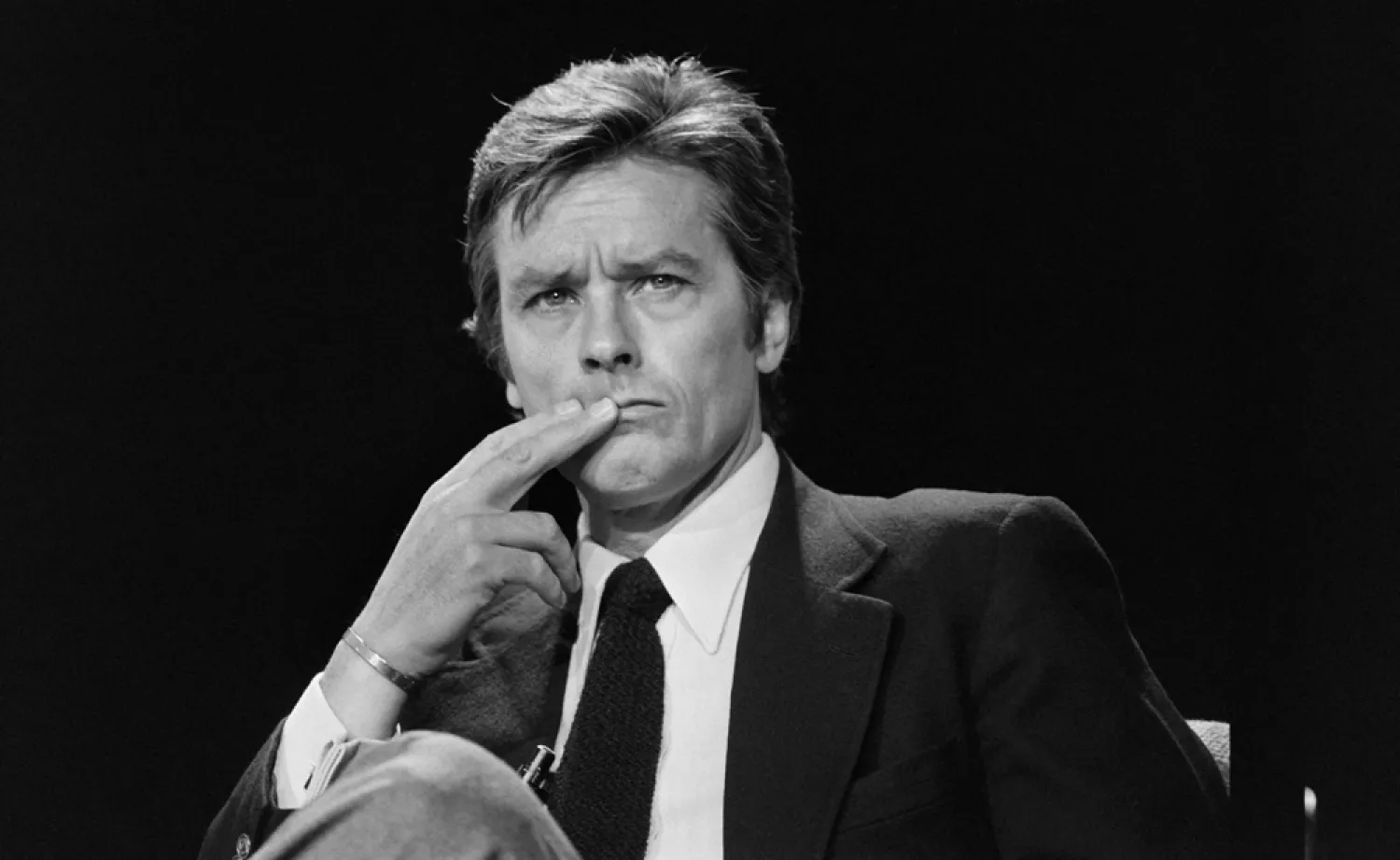French actor Alain Delon, who melted the hearts of millions of film fans whether playing a murderer, hoodlum or hitman in his postwar heyday, has died, French media reported on Sunday. He was 88.
Delon had been in poor health since suffering a stroke in 2019, rarely leaving his estate in Douchy, in France's Val de Loire region.
With striking blue eyes, Delon was sometimes referred to as the "French Frank Sinatra" for his handsome looks, a comparison Delon disliked. Unlike Sinatra, who always denied connections with the Mafia, Delon openly acknowledged his shady pals in the underworld.
In a 1970 interview with the New York Times, Delon was asked about such acquaintances, one of whom was among the last "Godfathers" of the underworld in the Mediterranean port of Marseille.
"Most of them, the gangsters I know ... were my friends before I became an actor," he said. "I don't worry about what a friend does. Each is responsible for his own act. It doesn't matter what he does."
Delon shot to fame in two films by Italian director Luchino Visconti, "Rocco and His Brothers" in 1960 and "The Leopard" in 1963.
He starred alongside venerable French elder Jean Gabin in Henri Verneuil's 1963 film "Melodie en Sous-Sol" ("Any Number Can Win") and was a major hit in Jean-Pierre Melville's 1967 "Le Samourai" ("The Godson"). The role of a philosophical contract killer involved minimal dialogue and frequent solo scenes, and Delon shone.
Delon became a star in France and was idolized by men and women in Japan, but never made it as big in Hollywood despite performing with American cinema giants, including Burt Lancaster when the Frenchman played apprentice-hitman Scorpio in the eponymous 1973 film.
In the 1970 film "Borsalino", he starred with fellow French actor Jean-Paul Belmondo, playing gangsters who come to blows in an unforgettable, stylised fight over a woman.
Crowning moments also included 1969 erotic thriller "La Piscine" ("The Swimming Pool"), where Delon paired up with real-life lover Romy Schneider, in a sultry French Riviera saga of jealousy and seduction.
TROUBLED MAN
Born just outside Paris on November 8, 1935, Delon started life on the back foot: he was put in foster care aged four after his parents divorced.
He ran away from home at least once and was expelled several times from boarding schools before joining the Marines at 17 and serving in then French-ruled Indochina. There too he got into trouble over a stolen jeep.
Back in France in the mid-50s, he worked as a porter at Paris wholesale food market, Les Halles, and spent time in the red-light Pigalle district before migrating to the cafes of the bohemian St. Germain des Pres area.
There he met French actor Jean-Claude Brialy, who took him to the Cannes Film Festival, where he attracted the attention of an American talent scout who arranged a screen test.
He made his film debut in 1957 in "Quand la femme s'en mele" ("Send a Woman When the Devil Fails").
SULPHUROUS FRIENDS
Delon was a businessman as well as an actor, leveraging his looks to sell branded cosmetics and dabbling in race-horses with old underworld friends. He invested in a racehorse stable with Jacky "Le Mat" Imbert, a notorious figure in a thriving Marseille crime scene.
Delon's more louche friendships exploded to the surface when a former bodyguard-cum-confidant, a young Yugoslav called Stefan Markovic, was found dead in a bag, with a bullet in his head, discarded in a rubbish dump near Paris.
The actor was interrogated and cleared by police but the "Markovic Affair" snowballed into a national scandal.
The man police charged with the Markovic murder - he was later acquitted - was Francois Marcantoni, a Corsican cafe owner and friend of Delon who thrived in the hustle and bustle of the Pigalle district in the aftermath of World War Two.
OUTSPOKEN
Delon was outspoken off-stage and courted controversy when he did so - notably when he said he regretted the abolition of the death penalty and spoke disparagingly of gay marriage, which was legalised in France in 2013.
He publicly defended the far-right National Front and telephoned its founder Jean-Marie Le Pen, an old friend, to congratulate him when the party did well in local elections in 2014.
Delon's lovers included Schneider and German model-turned-singer Nico, with whom he had a son. In 1964, he married Nathalie Barthelemy and fathered a second son before ending the marriage and embarking on a 15-year relationship with Mireille Darc. He had two more children with Dutch model Rosalie van Breemen.
In a January 2018 interview, Delon told Paris Match he was fed up with modern life and had a chapel and tomb ready for him on the grounds of his home near Geneva, and for his Belgian shepherd dog, called Loubo.
"If I die before him I'll ask the vet to let us go together. He will give the dog an injection so he can die in my arms."
Delon's last major public appearance was to receive an honorary Palme d'or at the Cannes film festival in May 2019.
In his last years, Delon was the center of a family feud over his care, which made headlines in French media.
In April 2024 a judge placed Delon under "reinforced curatorship", meaning he no longer had full freedom to manage his assets. He was already under legal protection over concerns over his health and well-being.
French Actor Alain Delon Dies Aged 88

French actor Alain Delon attends a TV show on French channel TF1, in Paris, on November 24, 1981. (AFP)

French Actor Alain Delon Dies Aged 88

French actor Alain Delon attends a TV show on French channel TF1, in Paris, on November 24, 1981. (AFP)
لم تشترك بعد
انشئ حساباً خاصاً بك لتحصل على أخبار مخصصة لك ولتتمتع بخاصية حفظ المقالات وتتلقى نشراتنا البريدية المتنوعة







